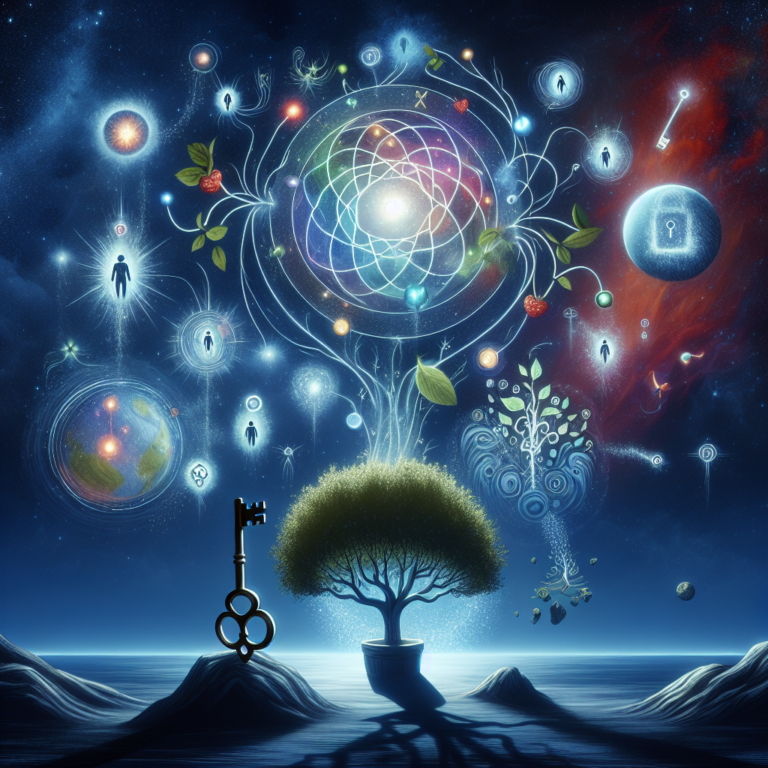Karma is a word that resonates across various cultures, religions, and philosophies. Most commonly associated with Eastern traditions like Hinduism and Buddhism, karma refers to the concept of moral cause and effect, where one’s actions influence future outcomes. However, many people misunderstand the nature of karma, resulting in misconstrued beliefs that can lead to confusion and misapplication of its principles. In this article, we will explore the common misconceptions surrounding karma, delve into its deeper meanings, and provide clarity to those who wish to understand this profound concept more holistically.
Understanding Karma
Karma originates from the Sanskrit word “karman,” which means “action.” At its core, karma is about actions, intentions, and the consequences that arise from them. The idea is that for every action, there is a result or an effect. However, it’s essential to note that karma operates beyond a simple transactional understanding of good and bad actions. Traditionally, karma encompasses a much broader scope of spiritual and moral implications.
Key Principles of Karma
- Action and Intention: It’s not just the action itself that matters, but the intention behind it. Positive actions rooted in good intentions generate positive karma.
- Causality: Karma emphasizes the interconnectedness of all actions. Every action has repercussions not only for oneself but also for others.
- Time and Space: Karma isn’t always immediate. The consequences of one’s actions may manifest in the future or even in a different lifetime.
- Balance: Karma teaches that balance is critical. Good actions can counterbalance negative deeds over time, leading to spiritual growth.
Common Misconceptions About Karma
Despite its profound significance, many misconceptions about karma persist. Let’s explore some of the most prevalent misunderstandings.
Misconception 1: Karma is a Punishment System
One of the most pervasive myths is that karma operates as a punishment system. Many believe that negative actions lead to harsh repercussions, while positive actions guarantee rewards. This perspective reduces karma to a simplistic moralistic framework, neglecting the broader spiritual significance.
In truth, karma is more about learning and growth than punishment. It offers opportunities to learn from our mistakes and make better choices. The consequences of our actions are not always painful but can lead to development, compassion, and deeper understanding.
Misconception 2: Karma is Immediate
Another common misunderstanding is the belief that karma works instantaneously. People often expect that if they do something good, they will see immediate rewards, and conversely, that bad actions will result in immediate consequences.
In reality, karma functions over a much longer timeline. Effects may ripple out over years, decades, or even lifetimes. This longer perspective allows individuals to reflect, grow, and adapt over time, rather than being caught in a cycle of immediate responses to every action.
Misconception 3: Karma is a Fatalistic Concept
Some individuals view karma as a deterministic belief that suggests people are powerless to change their destinies. This interpretation implies that since karma dictates the outcomes of actions, personal agency and choice are meaningless.
However, karma actually emphasizes personal responsibility and the power of choice. While past actions may influence present circumstances, every individual retains the ability to act differently in the future, thus altering their karmic trajectory.
Misconception 4: Only Negative Actions Create Bad Karma
Many assume that bad karma is solely a result of negative actions, while good actions lead to positive karma. This interpretation ignores the importance of intention and awareness in sustaining positive karma.
Positive karma can be diminished or negated by negative intentions even if the actions seem good on the surface. For instance, performing acts of kindness for recognition or selfish gain may lead to negative karmic consequences, even if the actions are outwardly positive. Therefore, both intention and action must align for good karma to manifest.
Misconception 5: Karma is Only About Individuals
While karma is often discussed in the context of individual actions, it is crucial to recognize that collective karma exists as well. Groups, communities, and even nations can generate karma based on their collective actions and intentions.
For instance, social injustices or environmental degradation can be viewed as collective karmic manifestations resulting from the actions of many individuals over time. Understanding this collective dimension of karma can inspire broader social change and accountability.
Exploring Karma in Different Cultures
Karma is not exclusive to Eastern philosophies; interpretations of similar concepts appear across many cultures worldwide. Understanding these perspectives can illuminate how people view actions, consequences, and moral responsibility.
Karma in Hinduism
In Hinduism, karma is tightly intertwined with the concepts of dharma (moral duty) and samsara (the cycle of rebirth). Actions in one’s current life significantly impact future births, where the quality of karma can determine one’s life circumstances. The aim is to attain moksha, or liberation from the cycle of birth and rebirth, achieved by accumulating good karma and fulfilling one’s dharma.
Karma in Buddhism
Buddhism also emphasizes karma, linking it with the law of cause and effect. In Buddhism, karma is not bound to the idea of fate but is viewed as a tool for understanding life’s complexities. It underscores the impact of immediate actions on one’s future, emphasizing mindfulness and ethical behavior as essential for spiritual development.
Karma in Western Philosophy
While the term “karma” is not used in Western philosophy, similar concepts of moral causality can be found in ideas about justice and morality. For example, many Western religions speak of divine retribution, where good is rewarded and evil is punished, although often viewed within a linear framework rather than a cyclical one.
The Role of Intention in Karma
As previously mentioned, intention plays a pivotal role in karma. It distinguishes between actions that are genuinely benevolent and those that are marred by ulterior motives. Understanding the significance of intention can enhance our awareness of the impact our actions have on ourselves and the world around us.
Mindfulness and Awareness
Practicing mindfulness can foster a deeper understanding of our intentions. By being present and aware of our thoughts, feelings, and motivations, we can choose actions that align with our ethical values and spiritual goals. Mindfulness helps cultivate empathy and compassion, which can contribute to generating positive karma.
Transforming Negative Karma
It’s possible to transform negative karma through conscious effort. By recognizing harmful patterns and choosing to act differently, individuals can begin to create positive outcomes from past actions. This process often involves deep reflection, personal growth, and making amends where possible. Engaging in compassionate acts can also assist in healing past negative karma and promote a more beneficial future.
Conclusion
Karma is a complex and multifaceted concept that goes beyond simplistic notions of reward and punishment. Understanding karma involves recognizing that our actions, intentions, and their broader implications create a dynamic interplay in our lives and the lives of others. By dispelling common misconceptions and exploring the deeper meanings of karma, we can cultivate a more profound sense of responsibility and awareness in our lives. Ultimately, the journey of understanding karma may lead to greater compassion, personal growth, and a harmonious existence.
FAQs
What is the difference between karma and fate?
Karma is about the consequences of our actions and the idea that we can actively shape our future through our choices. Fate, on the other hand, is often viewed as a predetermined path that we must follow. In many traditions, karma emphasizes personal agency, while fate suggests a lack of control over outcomes.
Can karma affect our relationships?
Yes, karma can significantly impact relationships. The actions and intentions we hold toward others influence our interpersonal dynamics. Positive actions and genuine intentions can help build trust and connection, while negative actions can lead to conflict and disconnection.
Is there a way to “clear” bad karma?
While you cannot erase past actions, you can transform your relationship with them. Practicing forgiveness, making amends, and engaging in positive, compassionate actions can help mitigate the effects of negative karma and create a more favorable trajectory moving forward.
Do I need to believe in reincarnation to believe in karma?
No, while karma is often discussed in the context of reincarnation in many Eastern philosophies, you do not need to believe in reincarnation to understand and apply the principles of karma in your life. Karma can be understood in the context of this lifetime and the immediate consequences of actions.
How can I apply the principles of karma in my daily life?
You can apply the principles of karma by being mindful of your actions and their impacts on yourself and others. Focus on cultivating positive intentions, practicing empathy, and making choices that align with your values. Reflecting on your daily actions and striving for personal growth can enhance your understanding of karma in practice.
Sure! What kind of prompt are you looking for? It could be a writing prompt, a creative idea, a question for discussion, or something else entirely. Let me know how I can assist you!, #Karma #Exploring #Misconceptions, #Karma #Exploring #Misconceptions, 1736274783, karma-is-not-what-you-think-exploring-misconceptions





